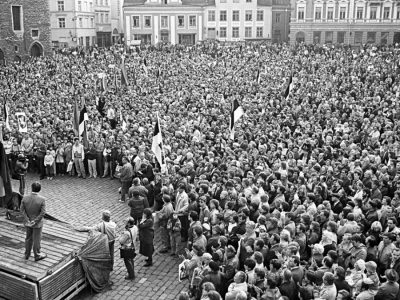The 1980 Olympics, held in Moscow, were embraced with much national joy, but also international discontent. After doing well in the previous Olympics, the Soviets repaired and built new training facilities and stadiums to prepare their athletes and show their world their pride and skill through sports. Soviet athletes are filled with desire … Continue reading Soviet Sports![]()
Persecution in Russia
by •
Jewish persecution is most typically associated with the Holocaust, but Soviets were brutally victimized as well. The Nazi party wished to push eastward in order to fulfill their dream of Lebensraum, or living space, and forced millions into labor and POW camps in the process. “German treatment of Soviet POWs differed dramatically from German policy … Continue reading Persecution in Russia![]()
Cult of Personality: Stalin versus Hitler
by •
In Chapter 11 of Russia a History, Freeze compares Stalin and the Nazi’s rise to power. This was a compelling observation to me so I looked into “The Cult of Personality” in Seventeen Moments which describes this as “a situation in which a public figure (such as a political leader) is deliberately presented to the … Continue reading Cult of Personality: Stalin versus Hitler![]()
Stalinism and Religion
by •
One of the most fascinating components of the ‘building of Stalinism’ is action taken against religion, especially the Russian Orthodox Church. Although the First-Five-Year Plan particularity focused on collective agriculture and industrialization, the attack on religion was physically and mentally schematized. Churches were not only destroyed by the thousands, but propaganda also declared religion poisonous. … Continue reading Stalinism and Religion![]()
Hangry Russians: The Importance of Food Instability
by •
Effect of War Limited military training = disorganized, undisciplined army Mobilization of industry = hindrance on production “inflation and food shortages = dissatisfaction” (Freeze, 273) Unstable government = anxious lower/middle classes “Increasingly, the state lost the capacity of requisition of food, fuel, and manpower, reflecting the decline in its moral authority” (Freeze, 272). The … Continue reading Hangry Russians: The Importance of Food Instability![]()
Yeah, (divine) Right!
by •
Religion was used as a uniting factor between the Tsar and the Russian principalities in the formation of the Russian state and for centuries following. “The East Roman conception of the derivation of power from God, and its relationship with ecclesiastical authority” (Madariaga, 12) became essential to Russian leadership. It represented a religious relationship with … Continue reading Yeah, (divine) Right!![]()
Blog Post 1 – Walters
by •
The selected photograph displays the actual bindings used on Mikhail Nikitich Romanov, the uncle of Tsar Mikhail Romanov. Mikhail was elected into power in 1613 and was the first of the Romanov line. He became a symbol of unity and political strength after a period in Russia known as the “Time of Troubles” in which … Continue reading Blog Post 1 – Walters![]()
First blog post
by •
This is the excerpt for your very first post.![]()
